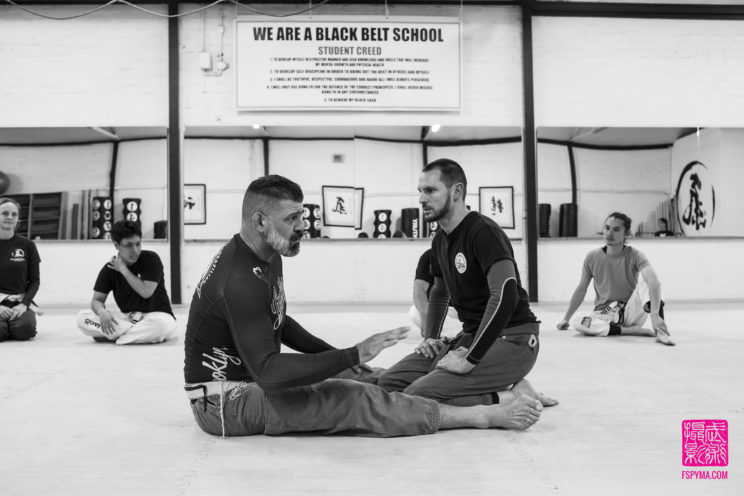
photo © fspyma.com
This week in our classroom we’ve been discussing the concept of “forgiveness”.
Heavy concept, I know : )
But let me share why I consider it a “black belt trait” and why it applies to our martial arts practice.
Forgiveness is sometimes seen as this very intense, demanding , even religious concept. I prefer to think about it in relation to “missing the mark”.
In archery, for instance, if you’re aiming for the bullseye but you miss, you don’t hold on to the mistake. It only makes sense that if you’re shooting at the target and you don’t hit it, you make a few adjustments and try it once more. You reload and go again.
What’s that mean for us in practice? Well, when we think about forgiveness in terms of missing the mark, it puts the responsibility of managing ourselves and our relationships into a different light.
To me, it suggests that we must forgive ourselves for making mistakes before we can start to forgive others for making mistakes.
And if you’ve done even a single day of martial arts training, you can relate to making lots and lots of mistakes.
For instance, consider that much of what we do in training – Jiu-Jitsu especially – results in failure. We often miss the mark. We miss the armlock, we miss the sweep and instead of forgiving ourselves, we insist on advancing without acknowledging that we’ve fallen short.
This attitude leads us into more trouble. We insist on pressing forward just to walk into the ashi-garami, or we insist on absently going forward and our partners move in to attack.
So the ability to let go and forgive ourselves for missing the mark is helpful. We don’t need to lose ourselves in reaction. We can return to center and continue along a good strategic course.
What’s more, when we do this, we make emotional and mental room to accept when other people make mistakes and miss the mark with us.
We become more open: because we’ve done it with ourselves, we can understand the subtleties of doing it for others.
But if we don’t acknowledge that we’ve missed the mark – if we can’t forgive ourselves for errors, or don’t take an honest look at who we are – there isn’t no conceptual space to do it for another person.
Make sense?
In my experience, this is a very good parallel. Our martial arts training helps us to understand ourselves better in a very direct way.
But that’s not all…
It’s no secret that one of the major points of martial arts training is to develop a sense of personal freedom. In other words, to be at home with yourself.
Forgiving others and forgiving ourselves is the cornerstone of that. Lots of traditions express something similar, but we’re placed face to face with it through Martial arts training. It’s direct and immediate.
So for what it’s worth, to me that’s a high-level black belt concept. It’s a lifelong practice to develop that communication within yourself, and then between yourself and other people.
That’s why we’re bringing the message forward during this time.
We wish all martial arts practitioners a very happy and safe New Year, with deep expectations for joy, understanding and compassion in 2017.
For more about our larger project of cooperative Jiu-Jitsu and martial arts training, please visit the
Brooklyn Brazilian Jiu-Jitsu (Brooklyn BJJ) website here.
Contact Gene Dunn here and Brian Glick here.
Very interesting point of view on forgiveness. I definitely agree on the point that before forgiving others we need to forgive ourselves.
I would add that sometimes we just need to forgive the fate that not everything went well!
Cheers
Jason